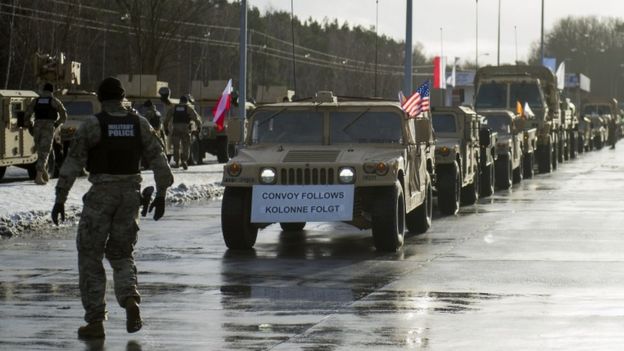McCain Administration Looking Back Pt2
The Accomplishments of the McCain Administration Pt. 2
Immigration
The McCain administration's stance on immigration was to be expected. Calls to further regulate immigration and to further increase border security. Of course, this became harder to justify when the Great Recession kicked in and while some portions of the border were reinforced, it would come at the cost of of some political points toward the McCain Administration and moreover, drops in reputation. After all, it became harder to justify the unwillingness to assist in stimulating the economy or helping out those in need because of a need to not increase the debt yet invest more in border security that seems not to accomplish as much. Even with some slight increase of accusations at illegal immigrants regaridng job theft, it became drowned out in regards to the fact about what jobs are being lost and moreover, the focus shifting back to the rich, elite and powerful. After all, it wasn't their fault for the Recession. Beyond that, there were some concerns about refugee crisises regarding the Iraqi-Syrian War and later the Arabic Civil War and even the North Korean incident. The first two did have some caps though the civil war was easier to deal with thanks to the various other Middle Eastern nations assisting in the endeavor. The North Korean incident though was a pretty complicated affair though Canada and even Mexico helped out thanks to the new Catholic pope wanting to make a strong good impression and taking in the people from the camps to recover. Overall, his stances on immigration and so on were viewed with a somewhat negative view though nothing very provactive.
Healthcare
Healthcare was someting that the McCain administration avoided really touching, knowing it would be political suicide to try and mess with Gore's accomplishments regarding the expansions of Medicare. Despite this, this did not try and stop them from finding other ways to try and discredit government-funded health to everyone. While this attempted with efforts over championing for workplaces to try and provide insurance, this did end up hurting them in the long run. While attempts were made like offering businesses credit for providing health insurance for employees along with trying to cut rates, it did little to approach the wider frame of doing so. The growing view was that the McCain administration's approach with healthcare was inadequate or insufficient, especially when it came to emergancy costs. However, looming over that was the data that was showing that Gore's Medicare for Kids program did save money in the long run and thus there was further empirical evidence for champions of universal single-payer healthcare. Beyond that, not much else was done though the McCain administration did work with Layton's government over importing medicine from Canada to try and force competition among the domestic ones, which also worked to expose alot of the corruption within the pharmeceutical industry.
Environment
While McCain did maintain environmentalist policies, he did so under the approach of more incentivizing businesses to follow green policies while trying to cut down on certain actions or requirements of the EPA, though this leaned more toward the ideal of "simplyifing" matters as per his stance of being a libretarian conservative. Of course, while the incentives did provide some influence (namely to try and increase some reputation after the Exxon-Mobil scandal), there was still corners being cut and being harder to report, forcing independent groups, journalists and other individuals to try and keep up though the growing social media presence assisted with spreading the information quickly. Unsurprisingly, this did lead to further accusations of various government officials colluding with big business and in fact influenced people more onto government oversight along with a further view on not just big business, but more on consumption culture and capitalism in general. Despite this, the growing environmentalism on both sides, including a fair bit of populists, did mean that on local levels and state levels, there were a few victories and it was a matter of making people more aware of the situation along with solutions. However, one positive was McCain maintaining funds for R&D for renewable energy (including nuclear) along with various other developments. Around the time did come greater awareness of the nunances of the situation. After all, wind and solar power were renewable, but still required expensive components that need to be mined and caused a bit of pollutions while trying to recycle them was a problem. Other issues included sufficient biofuel to be inexpensive (though advancements in genetics have helped) along with the chain of productions. While the McCain administration did not do much on those issues other than maintain investment for jobs, they were willing to bring out the criticisms (if in a somewhat cynical way) that would help push the need for greater action.
Immigration
The McCain administration's stance on immigration was to be expected. Calls to further regulate immigration and to further increase border security. Of course, this became harder to justify when the Great Recession kicked in and while some portions of the border were reinforced, it would come at the cost of of some political points toward the McCain Administration and moreover, drops in reputation. After all, it became harder to justify the unwillingness to assist in stimulating the economy or helping out those in need because of a need to not increase the debt yet invest more in border security that seems not to accomplish as much. Even with some slight increase of accusations at illegal immigrants regaridng job theft, it became drowned out in regards to the fact about what jobs are being lost and moreover, the focus shifting back to the rich, elite and powerful. After all, it wasn't their fault for the Recession. Beyond that, there were some concerns about refugee crisises regarding the Iraqi-Syrian War and later the Arabic Civil War and even the North Korean incident. The first two did have some caps though the civil war was easier to deal with thanks to the various other Middle Eastern nations assisting in the endeavor. The North Korean incident though was a pretty complicated affair though Canada and even Mexico helped out thanks to the new Catholic pope wanting to make a strong good impression and taking in the people from the camps to recover. Overall, his stances on immigration and so on were viewed with a somewhat negative view though nothing very provactive.
Healthcare
Healthcare was someting that the McCain administration avoided really touching, knowing it would be political suicide to try and mess with Gore's accomplishments regarding the expansions of Medicare. Despite this, this did not try and stop them from finding other ways to try and discredit government-funded health to everyone. While this attempted with efforts over championing for workplaces to try and provide insurance, this did end up hurting them in the long run. While attempts were made like offering businesses credit for providing health insurance for employees along with trying to cut rates, it did little to approach the wider frame of doing so. The growing view was that the McCain administration's approach with healthcare was inadequate or insufficient, especially when it came to emergancy costs. However, looming over that was the data that was showing that Gore's Medicare for Kids program did save money in the long run and thus there was further empirical evidence for champions of universal single-payer healthcare. Beyond that, not much else was done though the McCain administration did work with Layton's government over importing medicine from Canada to try and force competition among the domestic ones, which also worked to expose alot of the corruption within the pharmeceutical industry.
Environment
While McCain did maintain environmentalist policies, he did so under the approach of more incentivizing businesses to follow green policies while trying to cut down on certain actions or requirements of the EPA, though this leaned more toward the ideal of "simplyifing" matters as per his stance of being a libretarian conservative. Of course, while the incentives did provide some influence (namely to try and increase some reputation after the Exxon-Mobil scandal), there was still corners being cut and being harder to report, forcing independent groups, journalists and other individuals to try and keep up though the growing social media presence assisted with spreading the information quickly. Unsurprisingly, this did lead to further accusations of various government officials colluding with big business and in fact influenced people more onto government oversight along with a further view on not just big business, but more on consumption culture and capitalism in general. Despite this, the growing environmentalism on both sides, including a fair bit of populists, did mean that on local levels and state levels, there were a few victories and it was a matter of making people more aware of the situation along with solutions. However, one positive was McCain maintaining funds for R&D for renewable energy (including nuclear) along with various other developments. Around the time did come greater awareness of the nunances of the situation. After all, wind and solar power were renewable, but still required expensive components that need to be mined and caused a bit of pollutions while trying to recycle them was a problem. Other issues included sufficient biofuel to be inexpensive (though advancements in genetics have helped) along with the chain of productions. While the McCain administration did not do much on those issues other than maintain investment for jobs, they were willing to bring out the criticisms (if in a somewhat cynical way) that would help push the need for greater action.


